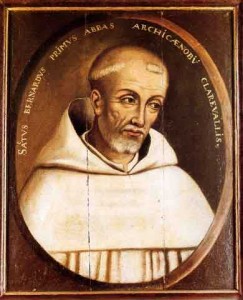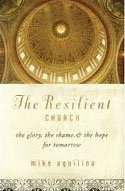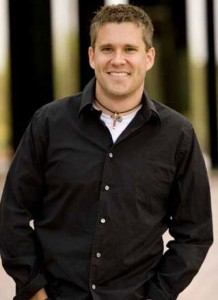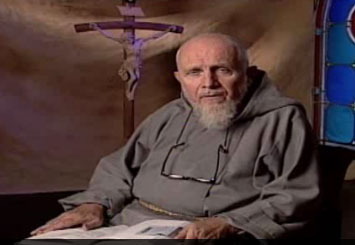Dr. Matthew Bunson discusses the life, times and teachings of St. Bernard of Clairvaux pt 1
Died: August 20, 1153, Clairvaux Abbey, France
Books:Â Two-Fold Knowledge
From Vatican.va, an excerpt from the teachings of Pope Benedict XVI General Audience 2009
Today I would like to talk about St Bernard of Clairvaux, called “the last of the Fathers” of the Church because once again in the 12th century he renewed and brought to the fore the important theology of the Fathers. We do not know in any detail about the years of his childhood; however, we know that he was born in 1090 in Fontaines, France, into a large and fairly well-to-do family. As a very young man he devoted himself to the study of the so-called liberal arts especially grammar, rhetoric and dialectics at the school of the canons of the Church of Saint-Vorles at Châtillon-sur-Seine; and the decision to enter religious life slowly matured within him. At the age of about 20, he entered Cîteaux, a new monastic foundation that was more flexible in comparison with the ancient and venerable monasteries of the period while at the same time stricter in the practice of the evangelical counsels. A few years later, in 1115, Bernard was sent by Stephen Harding, the third Abbot of Cîteaux, to found the monastery of Clairvaux. Here the young Abbot he was only 25 years old was able to define his conception of monastic life and set about putting it into practice. In looking at the discipline of other monasteries, Bernard firmly recalled the need for a sober and measured life, at table as in clothing and monastic buildings, and recommended the support and care of the poor. In the meantime the community of Clairvaux became ever more numerous and its foundations multiplied.
In those same years before 1130 Bernard started a prolific correspondence with many people of both important and modest social status. To the many Epistolae of this period must be added numerous Sermones, as well as Sententiae and Tractatus. Bernard’s great friendship with William, Abbot of Saint-Thierry, and with William of Champeaux, among the most important figures of the 12th century, also date to this period. As from 1130, Bernard began to concern himself with many serious matters of the Holy See and of the Church. For this reason he was obliged to leave his monastery ever more frequently and he sometimes also travelled outside France. He founded several women’s monasteries and was the protagonist of a lively correspondence with Peter the Venerable, Abbot of Cluny, of whom I spoke last Wednesday. In his polemical writings he targeted in particular Abelard, a great thinker who had conceived of a new approach to theology, introducing above all the dialectic and philosophical method in the constructi0n of theological thought. On another front Bernard combated the heresy of the Cathars, who despised matter and the human body and consequently despised the Creator. On the other hand, he felt it was his duty to defend the Jews, and condemned the ever more widespread outbursts of anti-Semitism. With regard to this aspect of his apostolic action, several decades later Rabbi Ephraim of Bonn addressed a vibrant tribute to Bernard. In the same period the holy Abbot wrote his most famous works such as the celebrated Sermons on the Song of Songs [In Canticum Sermones]. In the last years of his life he died in 1153 Bernard was obliged to curtail his journeys but did not entirely stop travelling. He made the most of this time to review definitively the whole collection of his Letters, Sermons and Treatises. Worthy of mention is a quite unusual book that he completed in this same period, in 1145, when Bernardo Pignatelli, a pupil of his, was elected Pope with the name of Eugene III. On this occasion, Bernard as his spiritual father, dedicated to his spiritual son the text De Consideratione [Five Books on Consideration] which contains teachings on how to be a good Pope. In this book, which is still appropriate reading for the Popes of all times, Bernard did not only suggest how to be a good Pope, but also expressed a profound vision of the Mystery of the Church and of the Mystery of Christ which is ultimately resolved in contemplation of the mystery of the Triune God. “The search for this God who is not yet sufficiently sought must be continued”, the holy Abbot wrote, “yet it may be easier to search for him and find him in prayer rather than in discussion. So let us end the book here, but not the search” (XIV, 32: PL 182, 808) and in journeying on towards God.
For more visit Vatican.va
Dr. Matthew Bunson, Senior Fellow of the St. Paul Center for Biblical Theology, is one of the United States’ leading authorities on the papacy and the Church.
His books include: The Encyclopedia of Catholic History; The Encyclopedia of Saints; Papal Wisdom; All Shall Be Well; Encyclopedia of the Roman Empire; and The Angelic Doctor: The Life and World of St. Thomas Aquinas; The Pope Encyclopedia; We Have a Pope! Benedict XVI, the first Catholic biography of the Holy Father in the English language; the Encyclopedia of U.S. Catholic History; Pope Francis. His also the editor of OSV’s “The Catholic Answer” magazine.
Tags: catholic, catholic podcast, catholic prayer, cathollc spirituality
This entry was posted on Friday, August 22nd, 2014 at 8:29 am
You can follow any responses to this entry through the RSS 2.0 feed.
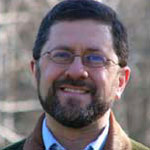 Episode 6– Crusades Abroad and at Home
Episode 6– Crusades Abroad and at Home
The Resilient Church with Mike Aquilina, offers a fascinating look at the trials and triumphs of the Catholic Church over the past two thousand years. Fast-paced sketches of critical periods in church history give readers perspective on the challenges faced by the church today. Mike Aquilina does not shrink from the realities of the past, including badly behaved leaders and those who betrayed the Lord. Yet he also leaves us all with well-founded hope for the future: God remains faithful in every circumstance and fulfills his promise to remain with his church always. Hosted by Kris McGregor
Also visit Mike’s “Discerning Hearts†page for more audio downloads and information!
Tags: catholic, catholic podcast, catholic prayer, cathollc spirituality
This entry was posted on Friday, August 22nd, 2014 at 8:16 am
You can follow any responses to this entry through the RSS 2.0 feed.
The Sunday, Sunday, Sunday Podcast is a reflection on the upcoming Sunday Mass readings presented by LifeTeen.com and hosted by Mark Hart.
Sunday Readings from the USCCB
Reading 1Â Â IS 22:19-23
Responsorial Psalm PS 138:1-2, 2-3, 6, 8
Reading 2 Â ROM 11:33-36
Gospel MT 16:13-20
Jesus went into the region of Caesarea Philippi and
he asked his disciples,
“Who do people say that the Son of Man is?â€
They replied, “Some say John the Baptist, others Elijah,
still others Jeremiah or one of the prophets.â€
He said to them, “But who do you say that I am?â€
Simon Peter said in reply,
“You are the Christ, the Son of the living God.â€
Jesus said to him in reply,
“Blessed are you, Simon son of Jonah.
For flesh and blood has not revealed this to you, but my heavenly Father.
And so I say to you, you are Peter,
and upon this rock I will build my church,
and the gates of the netherworld shall not prevail against it.
I will give you the keys to the kingdom of heaven.
Whatever you bind on earth shall be bound in heaven;
and whatever you loose on earth shall be loosed in heaven.â€
Then he strictly ordered his disciples
to tell no one that he was the Christ.
Lectionary for Mass for Use in the Dioceses of the United States, second typical edition, Copyright © 2001, 1998, 1997, 1986, 1970 Confraternity of Christian Doctrine;
Tags: catholic, catholic podcast, catholic prayer, cathollc spirituality
This entry was posted on Friday, August 22nd, 2014 at 8:06 am
You can follow any responses to this entry through the RSS 2.0 feed.
The Prayer of the Hebrew Scriptures – .  Fr. Groeschel discusses the experience of Abraham, Moses, the Maccabees.  He shares the beauty of the Psalms.  He speaks of the importance of the Christian enter the mystery of prayer found in the Hebrew Scriptures  (Old Testament of the Bible).
This program features Fr. Benedict Groeschel teaching and talking about the Catechism and the Bible with an emphasis on prayer. His discussion of prayer is based on the premise that an essential condition of prayer is devotion- the belief that God is listening and cares for us. In “Prayer in the Catechism”, Fr. Groeschel discusses the various kinds of prayer, including a special emphasis on using scripture when praying. The catechism contains basic Christian teaching formatted for learning and understanding. More information about the Catechism of the Catholic Church may be found on the United States Conference of Catholic Bishops website.
Benedict Joseph Groeschel, CFR is a Catholic priest, retreat master, author, psychologist, activist and has hosted several television programs. He was the director of the Office for Spiritual Development for the Catholic Archdiocese of New York as well as associate director of Trinity Retreat and the executive director of The St. Francis House. He was professor of pastoral psychology at St. Joseph’s Seminary in New York and an adjunct professor at the Institute for Psychological Sciences in Arlington, Virginia.
This program is a production of Pauline Media and the Daughters of St. Paul copyright 1997. Â For more from Pauline Media visit here
Tags: Benedict Groeschel, catholic, catholic podcast, catholic prayer, cathollc spirituality, Hebrew Scriptures
This entry was posted on Friday, August 22nd, 2014 at 7:45 am
You can follow any responses to this entry through the RSS 2.0 feed.
A Novena Prayer to St. Augustine
[powerpress]
Day 4
St. Augustine has written:
“You are surprised that the world is losing its grip, that the world is grown old? Think of a man: he is born, he grows up, he becomes old. Old age has its many complaints: coughing, shaking, failing eyesight, anxious, terribly tired. A man grows old; he is full of complaints. The world is old; it is full of pressing tribulations. . . . Do not hold onto the old man, the world; do not refuse to regain your youth in Christ, who says to you, ‘The world is passing away, the world is losing its grip, the world is short of breath. Do not fear. Thy youth shall be renewed as an eagleâ€
Heavenly Father,
we turn to you now with the intentions we hold in our hearts,
as pray as St. Augustine has taught:
Spirit of wisdom and understanding,
enlighten our minds to perceive the mysteries
of the universe in relation to eternity.Spirit of right judgment and courage,
guide us and make us firm in our baptismal decision
to follow Jesus’ way of love.Spirit of knowledge and reverence,
help us to see the lasting value of justice
and mercy in our everyday dealings with one another.May we respect life
as we work to solve problems of family and nation,
economy and ecology.Spirit of God,
spark our faith,
hope and love into new action each day.Fill our lives with wonder and awe
in your presence which penetrates all creation.
Intercede for us, , St. Augustine
That God may favorably hear our plea
And that He may grant us the grace
To accept His will in all things,
Through Jesus Christ, our Lord,
In the unity of the Holy Spirit,
One God forever and ever.
Amen.
Tags: catholic, catholic podcast, catholic prayer, cathollc spirituality
This entry was posted on Friday, August 22nd, 2014 at 7:07 am
You can follow any responses to this entry through the RSS 2.0 feed.
“What is the greatest rule of life?”
[powerpress]
an excerpt from today’s reflection by Don Schwager:
God is love and everything he does flows from his love for us (1 John 3:1, 4:7-8, 16). God puts us first in his thoughts and concerns – do we put him first in our thoughts? God loved us first (1 John 4:19) and our love for him is a response to his exceeding goodness and kindness towards us. The love of God comes first and the love of neighbor is firmly grounded in the love of God. The more we know of God’s love, truth, and goodness, the more we love what he loves and reject whatever is hateful and contrary to his will. God commands us to love him first above all else – his love orients and directs our thoughts, intentions, and actions to what is wholly good and pleasing to him. He wants us to love him personally, wholeheartedly, and without any reservation or compromise.
What is the nature of love? Love is the gift of giving oneself for the good of others – it is wholly other oriented and directed to the welfare and benefit of others. Love which is rooted in pleasing myself is self-centered and possessive – it is a selfish love that takes from others rather than gives to others. It is a stunted and disordered love which leads to many hurtful and sinful desires – such as jealousy, greed, envy, and lust. The root of all sin is disordered love and pride which is fundamentally putting myself above God and my neighbor – it is loving and serving self rather than God and neighbor. True love, which is wholly directed and oriented to what is good rather than evil, is rooted in God’s truth and righteousness (moral goodness).
What makes our love for God and his commands grow in us? Faith in God and hope in his promises strengthens us in the love of God. They are essential for a good relationship with God, for being united with him. The more we know of God the more we love him and the more we love him the greater we believe and hope in his promises. The Lord Jesus, through the gift of the Holy Spirit, gives us a new freedom to love as he loves. Paul the Apostle writes, “For freedom Christ has set us free… only do not use your freedom as an opportunity for the flesh [sinful inclinations], but through love be servants of one another” (Galatians 5:1,13). Do you allow anything to keep you from the love of God and the joy of serving others with a generous heart?
“Lord Jesus, your love surpasses all. Flood my heart with your love and increase my faith and hope in your promises. Help me to give myself in generous service to others as you have so generously given yourself to me.”
for the full reflection visit : Daily Reading and Meditation
Tags: catholic, catholic podcast, catholic prayer, cathollc spirituality
This entry was posted on Friday, August 22nd, 2014 at 12:33 am
You can follow any responses to this entry through the RSS 2.0 feed.
A Novena Prayer to St. Augustine
[powerpress]
Day 3![]()
St. Augustine has written:
“The wisdom of what a person says is in direct proportion to his progress in learning the holy scriptures–and I am not speaking of intensive reading or memorization, but real understanding and careful investigation of their meaning. Some people read them but neglect them; by their reading they profit in knowledge, by their neglect they forfeit understanding.†(from “On Christian Doctrine“)
Heavenly Father,
we turn to you now with the intentions we hold in our hearts,
as pray as St. Augustine has taught:
Spirit of wisdom and understanding,
enlighten our minds to perceive the mysteries
of the universe in relation to eternity.Spirit of right judgment and courage,
guide us and make us firm in our baptismal decision
to follow Jesus’ way of love.Spirit of knowledge and reverence,
help us to see the lasting value of justice
and mercy in our everyday dealings with one another.May we respect life
as we work to solve problems of family and nation,
economy and ecology.Spirit of God,
spark our faith,
hope and love into new action each day.Fill our lives with wonder and awe
in your presence which penetrates all creation.
Intercede for us, , St. Augustine
That God may favorably hear our plea
And that He may grant us the grace
To accept His will in all things,
Through Jesus Christ, our Lord,
In the unity of the Holy Spirit,
One God forever and ever.
Amen.
Tags: catholic, catholic podcast, catholic prayer, cathollc spirituality
This entry was posted on Thursday, August 21st, 2014 at 12:29 am
You can follow any responses to this entry through the RSS 2.0 feed.
“They would not come to the feast!”
[powerpress]
an excerpt from today’s reflection by Don Schwager:
This is certainly an invitation of grace – undeserved, unmerited favor and kindness! But this invitation also contains a warning for those who refuse it or who approach the wedding feast unworthily. God’s grace is a free gift, but it is also an awesome responsibility.
Cheap grace or costly grace?
Dieterich Bonhoeffer, a Lutheran pastor and theologian in Germany who died for his faith under Hitler’s Nazi rule, contrasted “cheap grace” and “costly grace”.
“Cheap grace is the grace we bestow on ourselves… the preaching of forgiveness without requiring repentance… grace without discipleship, grace without the cross, grace without Jesus Christ, living and incarnate… Costly grace is the gospel which must be sought again and again, the gift which must be asked for, the door at which a man must knock. Such grace is costly because it calls us to follow Jesus Christ. It is costly because it costs a man his life, and it is grace because it gives a man the only true life.”
God invites each of us as his friends to his heavenly banquet that we may celebrate with him and share in his joy. Are you ready to feast at the Lord’s banquet table?
“Lord Jesus, may I always know the joy of living in your presence and grow in the hope of seeing you face to face in your everlasting kingdom.”
for the full reflection visit : Daily Reading and Meditation
Tags: catholic, catholic podcast, catholic prayer, cathollc spirituality
This entry was posted on Thursday, August 21st, 2014 at 12:23 am
You can follow any responses to this entry through the RSS 2.0 feed.
A Novena Prayer to St. Augustine
[powerpress]
Day 2
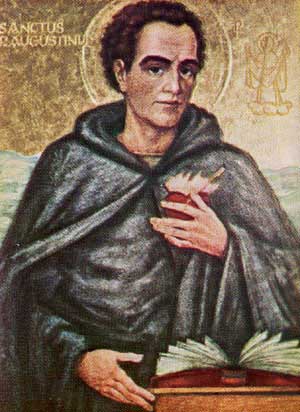 St. Augustine has written:
St. Augustine has written:
““Though good and bad men suffer alike, we must not suppose that there is no difference between the men themselves, because there is no difference in what they both suffer. For even in the likeness of the sufferings, there remains an unlikeness in the sufferers; and though exposed to the same anguish, virtue and vice are not the same thing. For as the same fire causes gold to glow brightly, and chaff to smoke; and under the same flail the straw is beaten small, while the grain is cleansed; and as the lees are not mixed with the oil, though squeezed out of the vat by the same pressure, so the same violence of affliction proves, purges, clarifies the good, but damns, ruins, exterminates the wicked.†(from “The City of God”)
Heavenly Father,
we turn to you now with the intentions we hold in our hearts,
as pray as St. Augustine has taught:
Spirit of wisdom and understanding,
enlighten our minds to perceive the mysteries
of the universe in relation to eternity.Spirit of right judgment and courage,
guide us and make us firm in our baptismal decision
to follow Jesus’ way of love.Spirit of knowledge and reverence,
help us to see the lasting value of justice
and mercy in our everyday dealings with one another.May we respect life
as we work to solve problems of family and nation,
economy and ecology.Spirit of God,
spark our faith,
hope and love into new action each day.Fill our lives with wonder and awe
in your presence which penetrates all creation.
Intercede for us, , St. Augustine
That God may favorably hear our plea
And that He may grant us the grace
To accept His will in all things,
Through Jesus Christ, our Lord,
In the unity of the Holy Spirit,
One God forever and ever.
Amen.
Tags: catholic, catholic podcast, catholic prayer, cathollc spirituality
This entry was posted on Wednesday, August 20th, 2014 at 3:19 pm
You can follow any responses to this entry through the RSS 2.0 feed.
“Do you begrudge my generosity?”
[powerpress]
an excerpt from today’s reflection by Don Schwager:
God is generous in opening the doors of his kingdom to all who will enter, both those who have labored a life-time for him and those who come at the last hour. While the reward is the same, the motive for one’s labor can make all the difference. Some work only for reward. They will only put in as much effort as they think they will get back. Others labor out of love and joy for the opportunity to work and to serve others. The Lord Jesus calls each one of us to serve God and his kingdom with joy and zeal and to serve our neighbor with a generous spirit as well.
The Lord Jesus wants to fill each one of us with the power and strength of the Holy Spirit so we can bear great fruit for God’s kingdom (the fruit of peace, joy, righteousness, and love) and also bring the fruit of his kingdom to our neighbor as well. We labor for the Lord to bring him praise, honor, and glory. And we labor for our neighbor for their welfare with the same spirit of loving-kindness and compassion which the Lord has shown to us.
Paul the Apostle reminds us, “Whatever your task, work heartily, as serving the Lord and not others, knowing that from the Lord you will receive the inheritance as your reward – you are serving the Lord Christ” (Colossians 3:23-24). Do you perform your daily tasks and responsibilities with cheerfulness and diligence for the Lord’s sake? And do you give generously to others, especially to those in need of your care and support?
“Lord Jesus,fill me with your Holy Spirit that I may serve you joyfully and serve my neighbor willingly with a generous heart, not looking for how much I can get, but rather looking for how much I can give.”
for the full reflection visit : Daily Reading and Meditation
Tags: catholic, catholic podcast, catholic prayer, cathollc spirituality, gospel of matthew
This entry was posted on Wednesday, August 20th, 2014 at 2:14 pm
You can follow any responses to this entry through the RSS 2.0 feed.
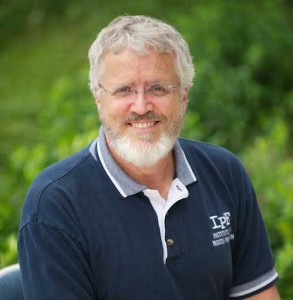 Episode 2 Salvation Begins Now: Last Things First –  What is  Death?  Why do we fail to contemplate it’s truth…why do we fear it?  What is Purgatory?  Why is there a need for final purgation?
Episode 2 Salvation Begins Now: Last Things First –  What is  Death?  Why do we fail to contemplate it’s truth…why do we fear it?  What is Purgatory?  Why is there a need for final purgation?
[powerpress]
From the Catechism of the Catholic Church:
1030 All who die in God’s grace and friendship, but still imperfectly purified, are indeed assured of their eternal salvation; but after death they undergo purification, so as to achieve the holiness necessary to enter the joy of heaven
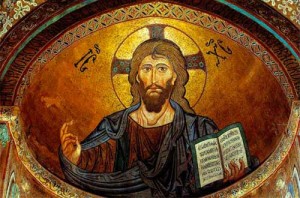
Deacon James Keating, PhD, the director of Theological Formation for the Institute for Priestly Formation, located at Creighton University, in Omaha.
For more information on the “Institute of Priestly Formation” and for other material available by Deacon Keating, just click here
Don’t forget to pickup a copy of “Communion with Christ” , it is one of the best audio sets on prayer…ever!
Check out Deacon Keating’s “Discerning Heart” page
Tags: catholic, catholic podcast, catholic prayer, cathollc spirituality, creighton university, death, institute for priestly formation, last things, purgatory
This entry was posted on Tuesday, August 19th, 2014 at 4:00 pm
You can follow any responses to this entry through the RSS 2.0 feed.
“Renewal: How a New Generation of Faithful Priests and Bishops Is Revitalizing the Catholic Church” is an 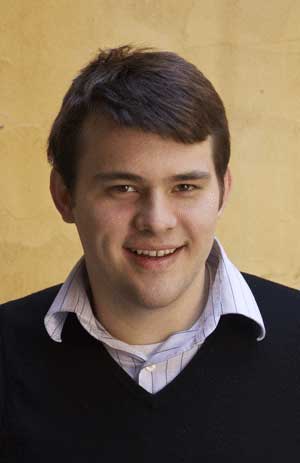 important work brought to us by Anne Hendershott and Christopher White.  It offers a thorough analysis of the state of the priesthood in the United States, and shines a light of joyful hope on a vital heartbeat of the Catholic Church.  Our conversation with Christopher White, addresses many of the issues that have plagued priestly formation and it’s character in recent decades, but also celebrates the many areas of reform and renewal. The current revitalizing of our gift of Holy Orders is truly a reason to celebrate and lift up in our prayer!
important work brought to us by Anne Hendershott and Christopher White.  It offers a thorough analysis of the state of the priesthood in the United States, and shines a light of joyful hope on a vital heartbeat of the Catholic Church.  Our conversation with Christopher White, addresses many of the issues that have plagued priestly formation and it’s character in recent decades, but also celebrates the many areas of reform and renewal. The current revitalizing of our gift of Holy Orders is truly a reason to celebrate and lift up in our prayer!
[powerpress]
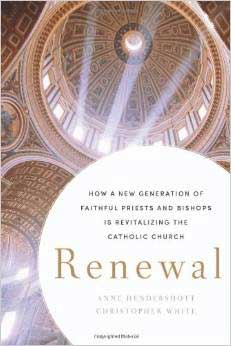 You can find the book here
You can find the book here
“This is the most fully detailed and documented account of the culture wars within the Catholic Church that anyone is likely to encounter. Some may think the authors are too pessimistic, stressing all the contentiousness within the living body. Count me as one who holds that public contestation is the reliable sign of vital cultures and inspiring institutions. Both the bad news, honestly reported, and the ‘less expected’ good news here will make many readers rejoice.”
–Michael Novak, author of Writing from Left to Right
“Hendershott and White are clear-eyed observers of the Catholic scene who offer the reader careful sociological analysis that leads to truly hopeful conclusions. Citing empirical and anecdotal evidence, they show the positive change the Church has been undergoing for some time–especially with the emergence of strong new leadership in the clergy–and they preview the Church we can expect our children and grandchildren to know. This book is real hope, without a hint of wishful thinking. I highly recommend Renewal.
–Scott Hahn, Professor of Theology, Franciscan University of Steubenville
Tags: catholic, catholic podcast, catholic prayer, Catholic Priesthood, cathollc spirituality
This entry was posted on Tuesday, August 19th, 2014 at 3:59 pm
You can follow any responses to this entry through the RSS 2.0 feed.
A Novena Prayer to St. Augustine
[powerpress]
Day 1 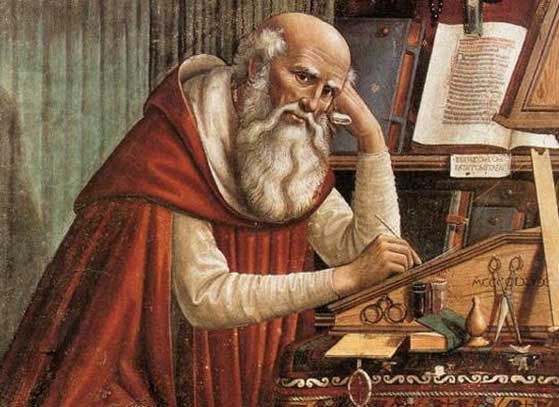
St. Augustine has written:
“No one knows what he himself is made of, except his own spirit within him, yet there is still some part of him which remains hidden even from his own spirit; but you, Lord, know everything about a human being because you have made him…Let me, then, confess what I know about myself, and confess too what I do not know, because what I know of myself I know only because you shed light on me, and what I do not know I shall remain ignorant about until my darkness becomes like bright noon before your face.†(from the “Confessions”)
Heavenly Father,
we turn to you now with the intentions we hold in our hearts,
as pray as St. Augustine has taught:
Spirit of wisdom and understanding,
enlighten our minds to perceive the mysteries
of the universe in relation to eternity.Spirit of right judgment and courage,
guide us and make us firm in our baptismal decision
to follow Jesus’ way of love.Spirit of knowledge and reverence,
help us to see the lasting value of justice
and mercy in our everyday dealings with one another.May we respect life
as we work to solve problems of family and nation,
economy and ecology.Spirit of God,
spark our faith,
hope and love into new action each day.Fill our lives with wonder and awe
in your presence which penetrates all creation.
Intercede for us, , St. Augustine
That God may favorably hear our plea
And that He may grant us the grace
To accept His will in all things,
Through Jesus Christ, our Lord,
In the unity of the Holy Spirit,
One God forever and ever.
Amen.
Tags: catholic, catholic podcast, catholic prayer, cathollc spirituality
This entry was posted on Tuesday, August 19th, 2014 at 3:06 pm
You can follow any responses to this entry through the RSS 2.0 feed.
“Who can enter the kingdom of heaven?”
[powerpress]
an excerpt from today’s reflection by Don Schwager:
Why is Jesus so cautious about wealth? Wealth can make us falsely independent. The church at Laodicea was warned about their attitude towards wealth and a false sense of security: “For you say, I am rich, I have prospered, and I need nothing” (Revelations 3:17). Wealth can also lead us into hurtful desires and selfishness (see 1 Timothy 6:9-10). Look at the lesson Jesus gave about the rich man and his sons who refused to aid the poor man Lazarus (see Luke 16:19ff). They neglected to serve God. Only those who put their trust in God and who depend on him, and who share what they have with those in need, will find true peace, security, and happiness which lead to everlasting life and joy in God’s kingdom.
The Scriptures give us a paradox – we lose what we keep and we gain what we give away. Generosity will be amply repaid, both in this life and in the age to come (Proverbs 3:9-10, Luke 6:38). Jesus offers us an incomparable treasure which no money can buy and no thief can steal. The thing we most set our heart on is our highest treasure. Material wealth will shackle us to this earth unless we guard our hearts and set our treasure in God and his everlasting kingdom. Where is your treasure?
“Lord Jesus, you have captured our hearts and opened to us the treasures of heaven. May you always be my treasure and delight and may nothing else keep me from giving you my all.”
for the full reflection visit : Daily Reading and Meditation
Tags: catholic, catholic podcast, catholic prayer, cathollc spirituality
This entry was posted on Tuesday, August 19th, 2014 at 12:20 pm
You can follow any responses to this entry through the RSS 2.0 feed.
 Episode 7Â Praying with Scripture: Christian Contemplation and Mediation in the Ignatian tradition w/Fr. Timothy Gallagher
Episode 7Â Praying with Scripture: Christian Contemplation and Mediation in the Ignatian tradition w/Fr. Timothy Gallagher
Fr. Gallagher continues to discuss the differences and benefits of meditation and contemplation – the cornerstones of Ignatius of Loyola’s spiritual practice.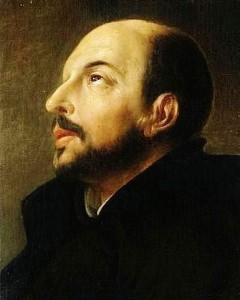
[powerpress]
For other episodes in the series visit The Discerning Hearts “Praying with Scripture†page
Father Timothy M. Gallagher, O.M.V., was ordained in 1979 as a member of the Oblates of the Virgin Mary, a religious community dedicated to retreats and spiritual formation according to the Spiritual Exercises of St. Ignatius. Â Fr. Gallagher is featured on the EWTN series “Living the Discerning Life: Â The Spiritual Teachings of St. Ignatius of Loyola”.
For more information on how to obtain copies of Fr. Gallaghers’s various books and audio which are available for purchase, please visit  his  website:   frtimothygallagher.org
 For the other episodes in this series check out Fr. Timothy Gallagher’s “Discerning Hearts†page
Tags: catholic, catholic podcast, catholic prayer, cathollc spirituality
This entry was posted on Monday, August 18th, 2014 at 1:53 pm
You can follow any responses to this entry through the RSS 2.0 feed.


